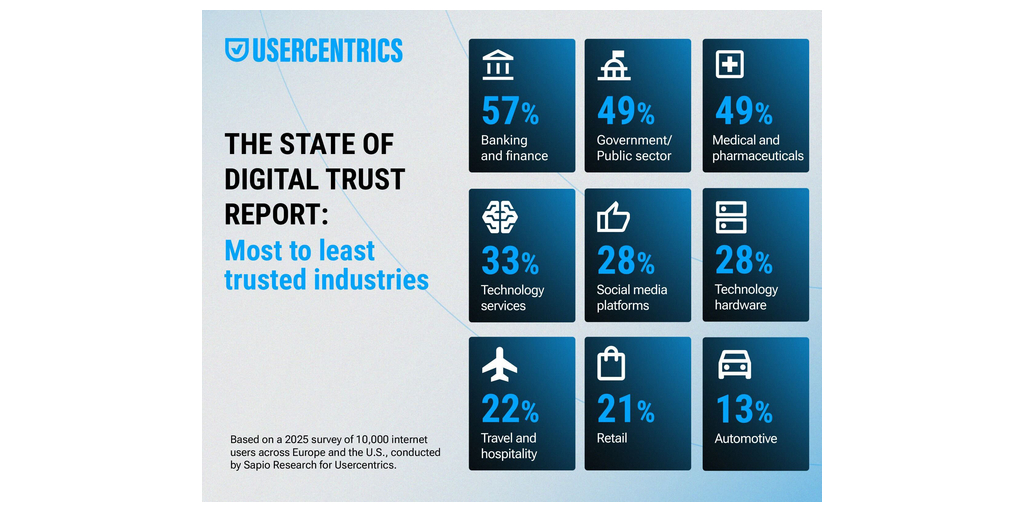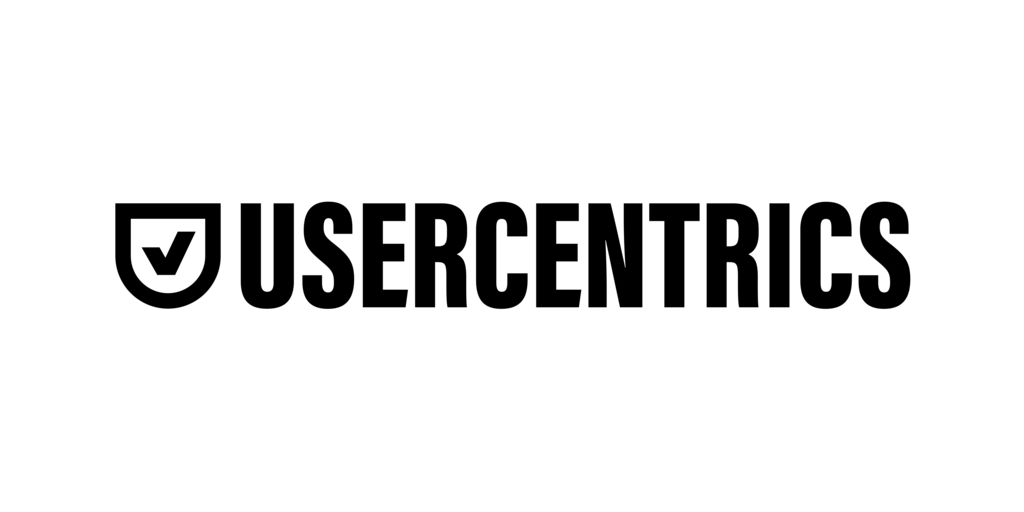Consumer trust is waning as AI and data concerns rise — driving a shift toward Privacy-Led Marketing strategies
MUNICH–(BUSINESS WIRE)–59% of consumers are uncomfortable with their data being used to train AI systems, according to a new report from privacy tech leader Usercentrics. But it isn’t AI itself that worries consumers – it’s the lack of clarity around how their data is used. Rather than rejecting innovation, people are demanding greater transparency and control.
According to the State of Digital Trust 2025 report, based on insights from 10,000 frequent internet users across Europe and the United States, digital privacy has become a strategic imperative. “We’re not witnessing a breakdown in trust, but a reset in expectations,” says Adelina Peltea, CMO at Usercentrics. “In the age of AI, giving users real control over their data isn’t just about compliance – it’s how brands build loyalty.”
Consumers Want Control And They’re Watching
This reset is already visible in user behavior. Nearly half of respondents (46%) say they accept cookies less often than three years ago. Meanwhile, 42% read consent banners always or often before sharing their data, suggesting that digital literacy is rising and consumers are prepared to engage – when the experience is respectful and clear.
This is not a rejection of personalization or digital innovation. It’s a call to reimagine data as a relationship, not a transaction. Today, only 23% of consumers say they fully understand how their data is used but the appetite to learn is there. Brands that make privacy understandable and actionable can turn complexity into competitive advantage.
Trust Is Sector-Specific and Can Be Earned
The report also reveals clear trust differentials across industries: Financial institutions (57%) and public institutions (49%) continue to score highest on trust when it comes to collecting and using customer data, thanks in part to rigorous regulation and public accountability. Meanwhile, sectors like social media (28%), hospitality (22%), and automotive (13%) face a steeper path to consumer confidence.
Rather than seeing these numbers as a threat, forward-thinking brands can view them as a roadmap. When asked why they trust certain organizations more, consumers cited clear communication, user-friendly privacy options, and ethical data usage.
Building the Future of Privacy-Led Marketing
The majority of users (62%) feel like they’ve “become the product”, but they’re not opting out of the digital world – they’re demanding better. Businesses that meet this moment with clarity, empathy, and consent-driven experiences will find themselves at the forefront of a new digital paradigm.
“In the privacy-first era, user experience is inseparable from data ethics,” Peltea added. “Speed matters, but so does accountability. Marketers who embrace transparency and prioritize user trust won’t just survive this shift – they’ll lead it.”
The full The State of Digital Trust Report is available at usercentrics.com.
Methodology
The State of Digital Trust Report 2025 is based on research by Sapio Research, commissioned by Usercentrics, of 10,000 consumers who use the internet more than once a month, across Europe: 2,500 each in the US & Germany, 2,000 in the UK, 1,000 each in Spain, Italy and the Netherlands. Surveys were carried out by Sapio Research in May 2025.
About Usercentrics
Usercentrics is a global market leader in solutions for data privacy and activation of consented data. Our technology solutions enable customers to manage user consent for websites, apps and CTV. Helping clients achieve privacy compliance, Usercentrics is active in 195 countries on more than 2.3 million websites and apps. We have over 5,400 partners and handle more than 7 billion monthly user consents. Learn more on usercentrics.com.
Contacts
Press contact:
Hannah Sinz
[email protected]
Tyto PR for Usercentrics
[email protected]








01
From telecom veteran to Dutch Startup Visa success: The Jignesh Dave story